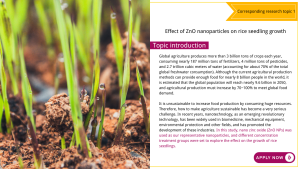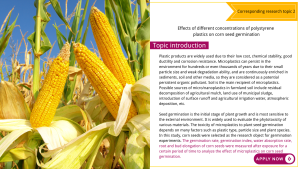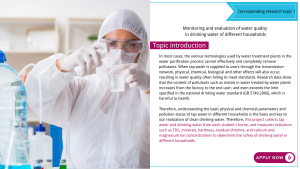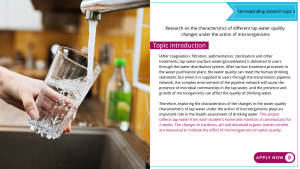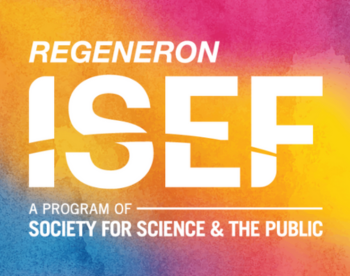Embark's Summer Exploration Camp:SDG Little Guardians
[elementor-template id="1670"]
The Sustainable Development Goals (SDGs) have become a hot topic of global concern. The global consensus under the community of human destiny has become a strategic goal for the whole world to work together.

The SDGs are integrated with 17 goals, 169 targets, and 230 indicators. The goals cover the world's common challenges, including issues such as poverty, health, education, gender equality, climate change, and cities and infrastructure.
This summer, we opened the Embark Biological Exploration Camp - SDG Little Guardian, which is giving children the opportunity to form a worldview and a global view through scientific research. Let the children integrate into real social life from an early age, understand the relationship between people, people and communities, places, countries, and the world from an early age, and experience and feel the "meaning of sustainable development".
So what kind of course is SDG Little Guardian? What age groups of children are suitable for participation? When is the class start time? What can children gain through the project?
Embark Biological Exploration Camp - SDG Little Guardians
This course offers a total of 4 small-class scientific research projects, corresponding to two of the 17 UN Sustainable Development Goals - Zero Hunger and Clean Water and Sanitation.


Students conduct biological research to understand the current situation in China. Through theoretical knowledge learning and hands-on practice, they complete the writing of project research reports and have a deeper understanding of SDGs.
Introduction to scientific research topics and corresponding goals
SDG Goal 2 - Zero Hunger
Eliminate hunger, achieve food security,
improve nutrition and promote sustainable agriculture.
- Corresponding research topic 1
The effect of applying ZnO nanoparticles on the growth of rice seedlings
Course content
- Explain the current situation of food inequality
- Current strategies for rice planting and increasing production
- Application of nanoparticles in smart agriculture
- Design experiments on the effects of different concentrations of nanoparticles on rice seedling growth
- Purchase seedlings in advance and then perform control variable processing
- Evaluate by measuring indicators such as root length, root weight, and leaf length
- Organize and draw experimental data
- Write an inquiry report
- Corresponding research topic 2
The effect of different concentrations of polystyrene plastic on corn seed germination
Course content
- Explain the relevant background of food production and smart agriculture
- Introduce the current research status of microplastic pollution
- Design an experimental plan on the effect of different concentrations of microplastics on corn seed germination
- Solution preparation
- Seed pretreatment and exposure experiment
- Observe seeds in stages and record data
- Determine the root length, water absorption rate and other indicators of germinated seeds
- Draw and organize experimental data
- Write an inquiry report
SDG Goal 6 - Clean drinking water and sanitation
Provide water and sanitation for all,and manage them sustainably.
- Corresponding research topic 1
Water quality monitoring and evaluation of drinking water in different households
Course content
- Introduce the current situation of water pollution in China
- Explain the relevant knowledge about water quality standards
- Introduce relevant methods of water purification
- Collect tap water and drinking water from each student’s home
- Determine TDS and minerals of different water samples
- Determine hardness and residual chlorine of different water samples
- Determine calcium and magnesium ion concentrations of different water samples
- Organize and draw experimental data
- Write a research report
- Corresponding research topic 2
Research on the characteristics of water quality changes of different tap water under the action of microorganisms
Course content
- Introduce the current situation of water pollution in China
- Explain the relevant knowledge about water quality standards
- Introduce relevant methods of water purification
- Collect tap water and drinking water from each student’s home and determine the indicators
- Determination of water quality indicators(2)
- Determination of water quality indicators(3)
- Determination of water quality indicators(4)
- Organize and draw experimental data
- Write an inquiry report
Embark Biological Exploration Camp Course Information
- Target group
We hope that you are in G4-8, students with zero foundation and interested in biochemical experiments, environmental science, and world development. - Class opening time
The class starts in the summer. For specific course opening dates, you can scan the code to add a junior sister for consultation. One class lasts about 90 minutes, with the first 45 minutes being the theoretical teaching section and the last 45 minutes being the hands-on experiment section. - Mentor Team
Embark Scientific Director H's Team
Team Research Fields: Microbial Metabolite Optimization, Biotechnology, etc.
Good at analyzing the award trends of major international top scientific research competitions such as ISEF and Yau Science Award
In 2021, he led students to win the fourth prize in the ISEF Global Finals, and in 2022-2024, he led students to win the first and second prizes in the Global Finals for three consecutive years (with the right to name asteroids)
Through learning in the Biological Exploration Camp, you will gain
- Improvement of comprehensive ability
In the theoretical knowledge teaching session of each class, the teacher will use the subject background as the entry point. You can recognize the current situation of sustainable development in my country and even the world, experience the satisfaction of participating in social responsibility, and broaden your horizons. Students will be able to exercise creativity, expand skills, and accumulate practical experience, which will help personal growth, further study applications and career development. - Improvement of scientific research ability
Every class is indispensable and everyone is most looking forward to the hands-on practice session. The teacher will lead students to do various interesting scientific experiments, improve children's hands-on practice ability, understand the use of professional equipment, and lay a solid foundation for more professional scientific research in the future. - Official Authoritative Certificate
Through class learning, students can obtain the United Nations official public welfare certificate, which can add color to future academic and career development.
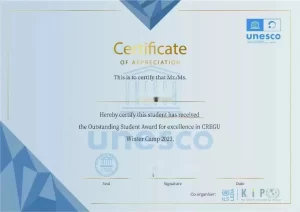
Currently, Embark Biological Exploration Camp is recruiting! If you are interested in the United Nations Sustainable Development Strategic Goals, and are willing to solve problems around the world through biochemical experiments, and want to "recharge" yourself through scientific research during the summer, don't miss this SDG Little Guardian course full of gold!Welcome to consult Embark
[elementor-template id="1682"]

